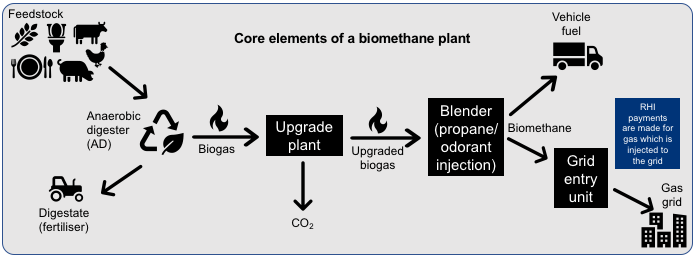Biomethane is a refined version of the biogas which is produced from anaerobic digestion plants. It offers an alternative to fossil fuels in the gas network and in road transport. Investment in the production of biomethane has increased significantly in recent years, much of it underpinned by the Renewable Heat Incentive (RHI). As part of the CAG-led evaluation of the RHI for the Department for Business, Energy and Industrial Strategy (BEIS), we recently investigated the role of the RHI in the biomethane market. Our reports were published by BEIS in late April 2020.

The RHI was found to be critical to the ongoing development of the biomethane market and, in comparison to other RHI technologies, the RHI’s support of this market was found to offer strong value-for-money both in terms of renewable heat generation and carbon abatement.
The extent of the market’s reliance on the RHI (or other Government support) in future will depend on the wider policy and regulatory landscape, including:
- the level of incentives for renewable electricity (since biogas can also be used to generate electricity);
- the opportunities for and costs of injecting biomethane into the gas grid;
- waste collection and treatment regimes;
- the price of incentives for biomethane use as a transport fuel; and
- the availability of finance for the very substantial investment required in a biomethane production plant.
